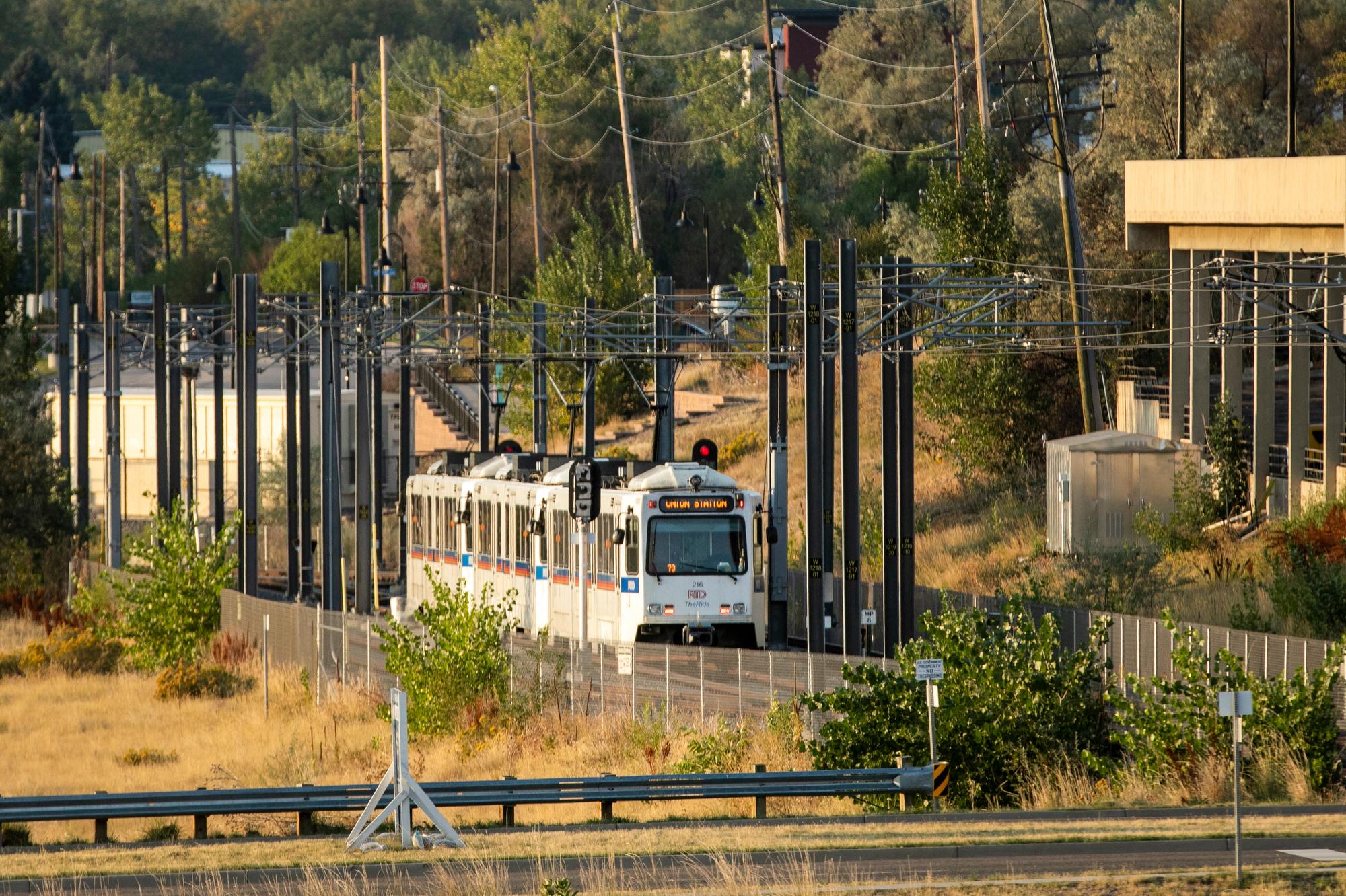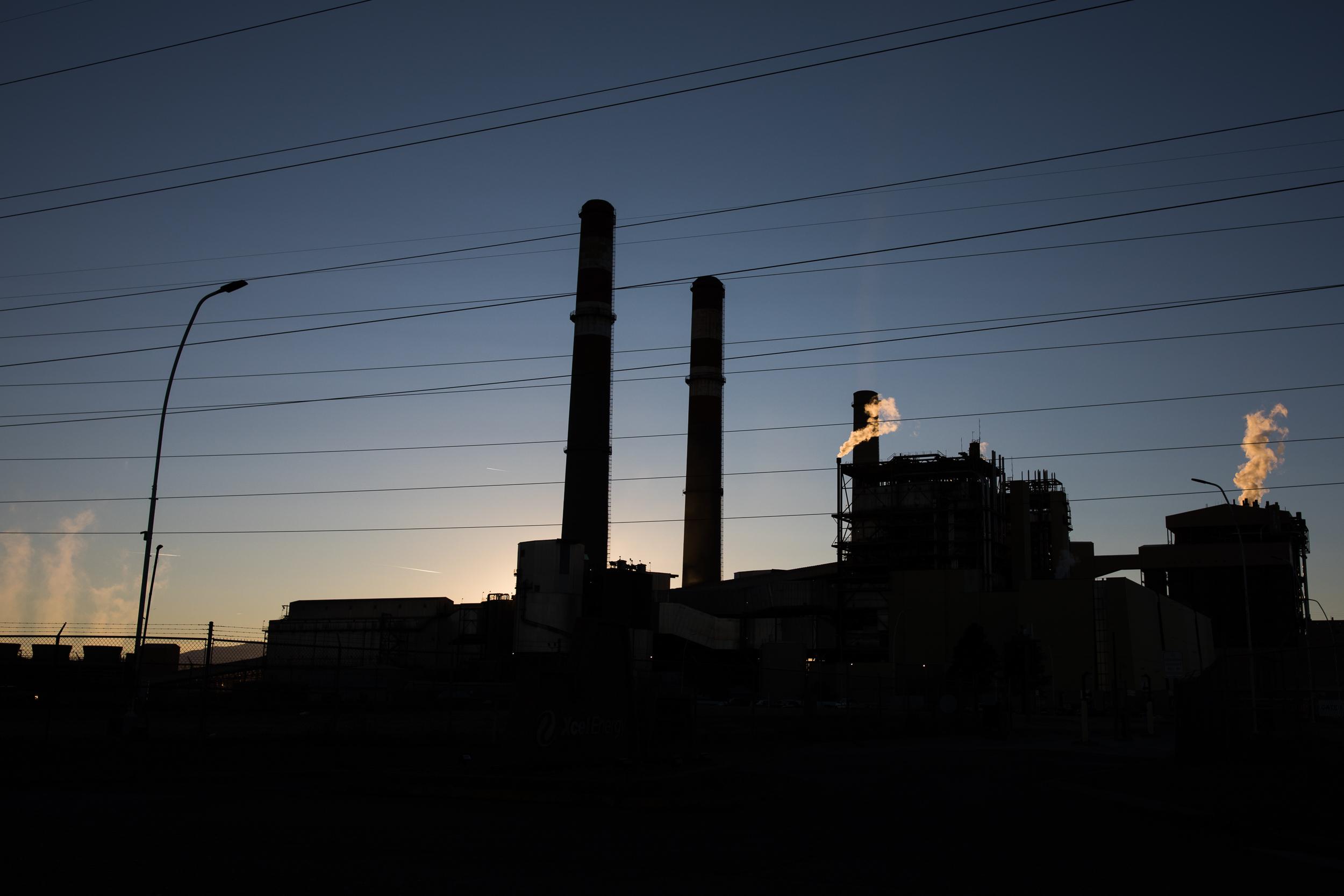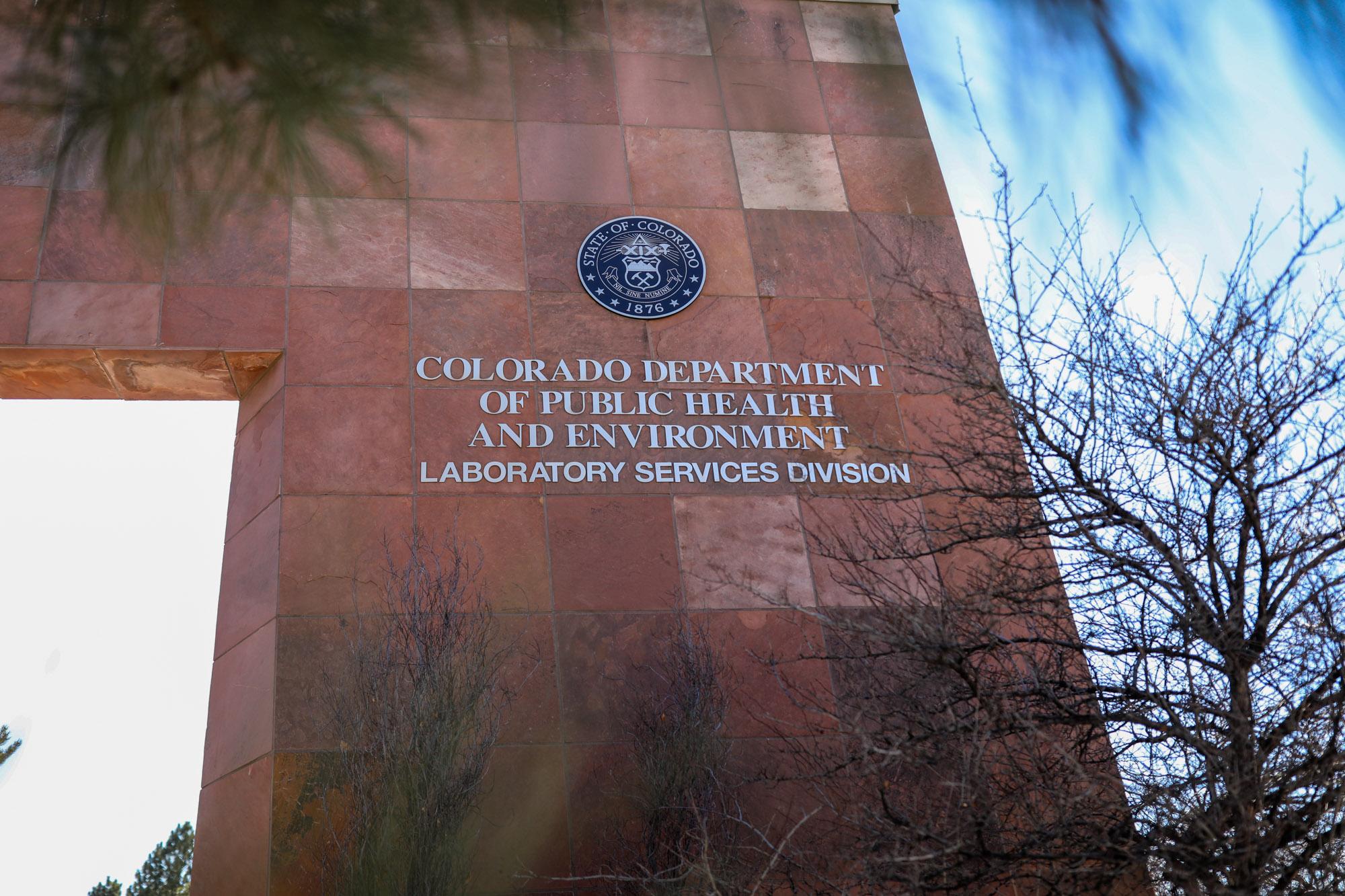
After seeing tens of thousands of its passengers stay home in 2020, the Regional Transportation District hopes they’ll be back on buses and trains this year. Still, there are a lot of unknowns: when will vaccines be distributed more widely? Will more people continue to work from home? RTD’s new leader Debra Johnson has been thinking about all those questions. She spoke with Colorado Matters host Avery Lill.
Read the Interview Transcript
Avery Lill: Debra, let’s start with a big question. How will RTD try to get more passengers back on board?
Debra Johnson: "Public transport here in this country has not had one incident where it's been qualified as being a super spreader. So I think, if anything, it's showcasing and educating our various customer segments about what it is that we have to offer."
AL: So much has changed about where people need to go and when. RTD has seen ridership of its downtown commuter lines drop off severely. But some of the bus lines through the heart of Denver -- especially working class neighborhoods -- are still full. What does that say about the evolving need for RTD and its future?
DJ: "Well, I think if anything it really showcases that public transportation is really interwoven into the vitality of the community. Clearly, it's been one in which we have our essential employees transporting other essential workers."
AL: More transit service is a key part of Colorado’s plan to cut emissions. Yet that plan didn’t come with new funding for RTD. Can the agency afford to provide the service the region needs?
DJ: "I think, if anything, we're going to have to be creative. ... While it is an unfunded mandate, I think public transportation has an obligation and a role to help reduce the carbon footprint. Because we have the opportunity to move massive amounts of people."
AL: RTD has some electric buses in its fleet. Do you have any plans to add more?
DJ: "We do. We are looking at that going forward. Because basically, it's great for the environment. And more so, great for people. When you look at individuals, and especially children in black and brown communities that tend to be more asthmatic, I think it's incumbent on us as being a good public servant that we have to take that into consideration."
So yes, we actually have plans to add more battery electric buses in our fleet. But we're looking at it holistically. Because battery electric buses are much more expensive than one standard diesel bus. Because it's not only the bus in and of itself, it's the infrastructure that supports that mechanism and propulsion system."
"And let's not be remiss in stating that it's training. We may have a diesel mechanic that's been on staff for a couple of decades. It's ensuring that that individual knows how to become a technician and actually troubleshoot diagnostically using a laptop or some smart device, as opposed to turning a wrench."
AL: Boulder and Longmont are still waiting for the rail line promised in 2004. The chair of RTD’s board has invited Governor Jared Polis to a meeting next week to talk about that. What are you hoping to accomplish in that meeting?
DJ: "Well, I think if anything it's having conversations. And what I've said since the first job I came on this job on November 9th, it's just let's see what we can do collectively. … Recognizing that time has passed since 2004, we need to figure out how do we go forward. And what does that look like? ... And so, having conversations is something that I invite. Especially being new to this area and so forth."
"I do understand that people are basically wedded to the idea of having rail because it's something they supported. They've contributed to ensuring that will come to fruition. However, we need to collectively think where we are, recognizing the obvious, in relationship to having viable funding to support the path forward."
AL: What can RTD do to rebuild trust with frustrated taxpayers?
DJ: "While I recognize that there is various populations, demographics, customer segments and taxpayers as a whole, that may be somewhat frustrated by what was, I'm a firm believer let's talk about what can be. Because by having the conversation, I think it's paramount to understand where that frustration rests. Because there's a lot of things that have happened holistically in reference to paying taxes and so forth. We're not going to be able to please everyone, but maybe we can come to some understanding where it's something palatable for everyone."
"And perhaps that could be a train. It could be some other modality. I don't know what that is, and I'm not going to sit here pretending I'm a soothsayer to say what it should be or what I know it to be. But I'm open to having that dialogue. Because I need to ensure that I garner a better understanding of those pain points so then we can have fresh conversations. Which I believe can bridge the gap to forging a relationship where it can be more open and transparent, which I would hope would yield to greater sense of trust and honesty."
AL: The Denver area has many sprawling developments and large parking lots. How can RTD compete when driving often takes less time?
DJ: "Well, I think if anything, having those conversations, as I said before. Working with stakeholders, partners, having dialogue ... has to be done collectively. Because to entice people to get out of their cars, it's to see transit as a benefit. So if there's dedicated lanes, if there's signal preemption, queue jump lanes, and there's some benefit to taking transport, that will entice people to want to get out of their cars. But RTD doesn't have the auspices over all jurisdictions to making that come to fruition."
AL: What could other entities, like cities and the state, do to make transit more attractive?
DJ: "Well I think, basically, there's a myriad of different things. I don't think I can answer it in a global sense. But what I will say, recognizing what are the benefits holistically to the various constituency. If it is reducing the carbon footprint, then basically, maybe there could be something along the lines of having designated lanes during certain hours of the day. Maybe this community isn't collectively ready to go forward with eliminating a lane in totality, but perhaps it could be designated as a transit-only lane during specific times of the day. Perhaps there could be incentives going forward, collectively, for those that are utilizing transit."
AL: In Colorado, have you leaned on jurisdictions like cities or the state to make those kinds of changes?
DJ: "We've had conversations, I mean, in my initial listening tour, as I familiarized myself with the area. There is a willingness, quite naturally, with the people whom I've engaged.”
AL: Some community groups have pushed RTD to make it free to ride buses and trains. Would you support that?
DJ: "Well, let's just be clear, we can have discussions about what that is. Because there's no such thing as free, when we think about it holistically. So what does mean? It gets back to my comments relative to having discussions with partners and stakeholders to bring things to fruition."
AL: What do you want the Denver region and the state to know about RTD right now?
DJ: "That RTD is an agency that is about moving people. We are people moving people. And as I've said, I'm a person in the people business. So we can't lose sight of that. Because without our customers, there would be no need for me and my team. So when we think about it in those terms, that's what our basic priority is. It's moving people so we can unleash them from their limitations to thrive in their livelihoods."
“And more so for me than anything, recognizing that I come from a space in reference to not having a car growing up. When I was in college at the University of California Davis, I took Unitrans, which was the University of California Davis' bus system. I walked."
“And I think it's important that we talk to people that are utilizing the system. Because I think it's important that we go not only from the bus stop, but to the board room. We need to ensure that we hear the voices of the voiceless so we understand what it is that they need."









